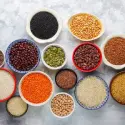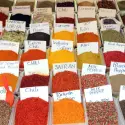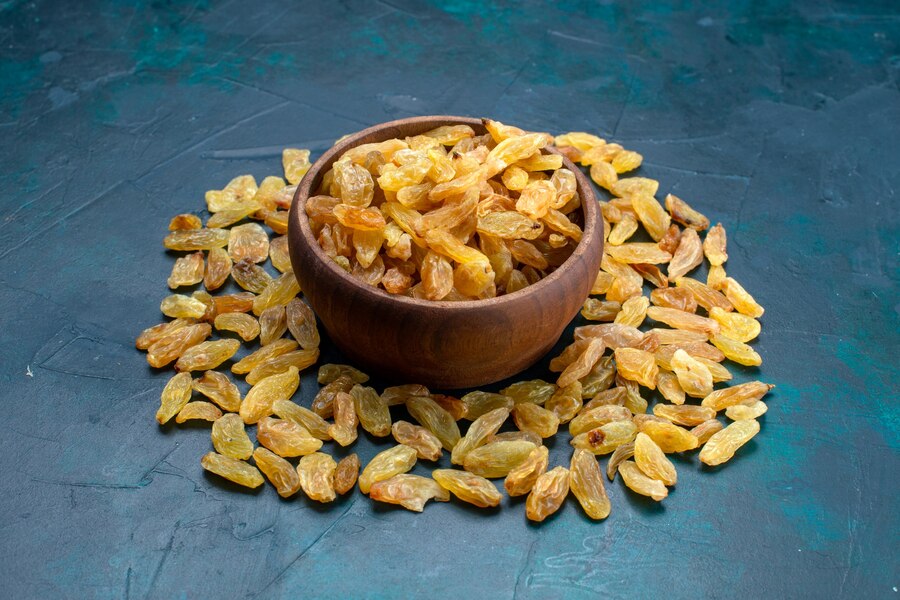Unlocking the Sweet Secrets: Indian Raisins’ Global Appeal
Raisins, those tiny jewels of sweetness, have been cherished across cultures for centuries. Among the world’s top producers of this delectable dried fruit is India, where a unique combination of climate, soil, and tradition converge to yield raisins of exceptional quality. In this comprehensive exploration, we delve into the rich tapestry of Indian raisins, examining their quality, the pivotal role India plays in global exports, and the scientific underpinnings that contribute to their excellence.
The Legacy of Indian Raisins
Raisin cultivation in India traces back centuries, entwined with the country’s agricultural heritage. Primarily grown in the states of Maharashtra, Karnataka, Andhra Pradesh, and Tamil Nadu, Indian raisins benefit from a diverse range of microclimates, each contributing to the nuanced flavors and textures they exhibit. The historical significance of raisins in Indian cuisine further cements their place in the nation’s culinary identity, featuring prominently in both sweet and savory dishes, as well as traditional Ayurvedic practices.
Quality Parameters: What Sets Indian Raisins Apart
-
Varietal Diversity: India boasts a rich assortment of grape varieties, providing a spectrum of flavors and characteristics to its raisins. Varieties such as Thompson Seedless, Sonaka, and Manak yield raisins with distinct taste profiles, from honeyed sweetness to tangy notes, catering to diverse consumer preferences.
-
Sun-Drying Techniques: The traditional method of sun-drying, prevalent in Indian raisin production, imparts a unique depth of flavor and preserves nutritional integrity. This artisanal approach ensures that raisins retain optimal moisture content while developing concentrated sugars, resulting in plump, succulent fruits prized for their texture and taste.
-
Stringent Quality Control: With the increasing emphasis on food safety and hygiene standards, Indian raisin producers adhere to rigorous quality control measures at every stage of production. From vineyard management to post-harvest processing, stringent protocols are enforced to maintain purity and freshness, earning Indian raisins acclaim for their superior quality on the global stage.
India's Role in Global Raisin Trade
India occupies a prominent position in the global raisin market, serving as a key exporter to discerning consumers worldwide. The country’s strategic geographic location, coupled with robust infrastructure and logistical networks, facilitates efficient distribution channels, ensuring timely delivery of premium-quality raisins to international markets. Moreover, India’s competitive pricing and adherence to international quality standards further enhance its appeal as a preferred supplier, driving sustained demand and fostering enduring trade partnerships.
Climatic Factors: Nature's Contribution to Raisin Excellence
-
Abundant Sunshine: The tropical and subtropical regions of India receive ample sunlight throughout the year, essential for the cultivation of grapes destined for raisin production. Sunlight not only fuels photosynthesis, promoting fruit development and sugar accumulation but also facilitates the natural dehydration process crucial for raisin formation, yielding fruits with ideal sweetness and texture.
-
Moderate Temperatures: The temperate climate prevalent in many raisin-growing regions of India ensures optimal growing conditions, characterized by warm days and cool nights. This diurnal temperature variation imparts complexity to the grapes’ flavor profile, enhancing their aromatic nuances while promoting balanced sugar and acidity levels, prerequisites for premium-quality raisins.
-
Monsoonal Influence: The seasonal monsoon rains, while vital for sustaining agricultural productivity, are carefully managed to mitigate potential risks to raisin crops. Timely rainfall coupled with well-drained soils fosters healthy vine growth and fruit maturation, striking a harmonious balance between moisture retention and aeration, thereby safeguarding against fungal diseases and ensuring the integrity of the final product.
Scientific Insights into Raisin Formation
The process of raisin formation is a fascinating interplay of physiological and biochemical mechanisms, governed by the grapevine’s response to environmental cues and intrinsic metabolic pathways. As grapes undergo desiccation post-harvest, several biochemical transformations occur, including the enzymatic conversion of complex carbohydrates into simple sugars, such as glucose and fructose, contributing to the raisins’ characteristic sweetness. Concurrently, the accumulation of phytochemicals, such as polyphenols and antioxidants, confers health-promoting properties to raisins, enhancing their nutritional value and appeal to health-conscious consumers.
Indian raisins stand as a testament to the symbiotic relationship between nature’s bounty and human ingenuity, offering a tantalizing glimpse into the intersection of tradition, science, and commerce. With their unparalleled quality, India’s raisin industry continues to thrive, poised on the cusp of new horizons, driven by innovation and a steadfast commitment to excellence. As these delectable fruits traverse continents, bridging cultures and palates, they serve as ambassadors of India’s agricultural prowess and culinary heritage, enriching lives and delighting taste buds around the globe.






